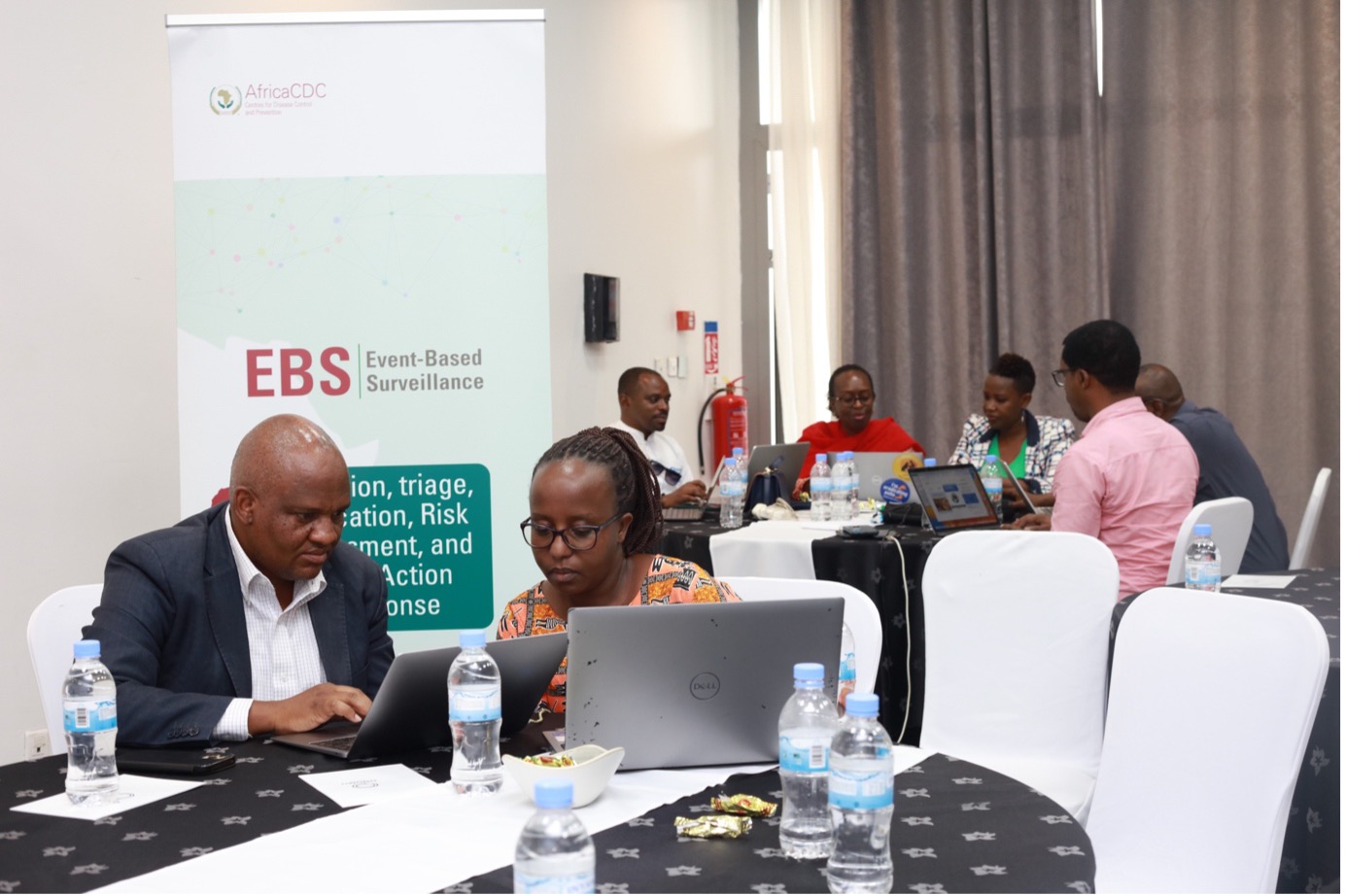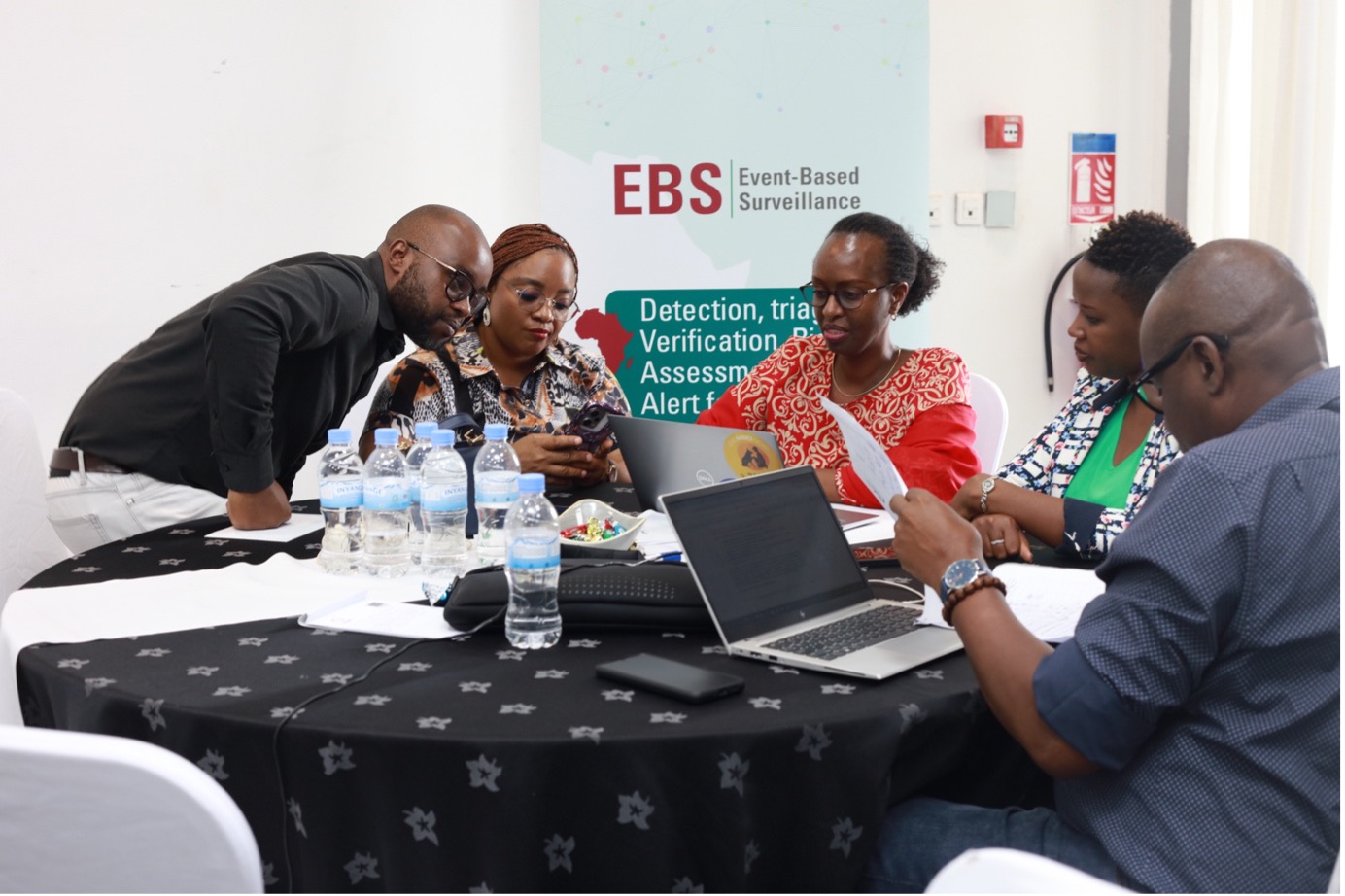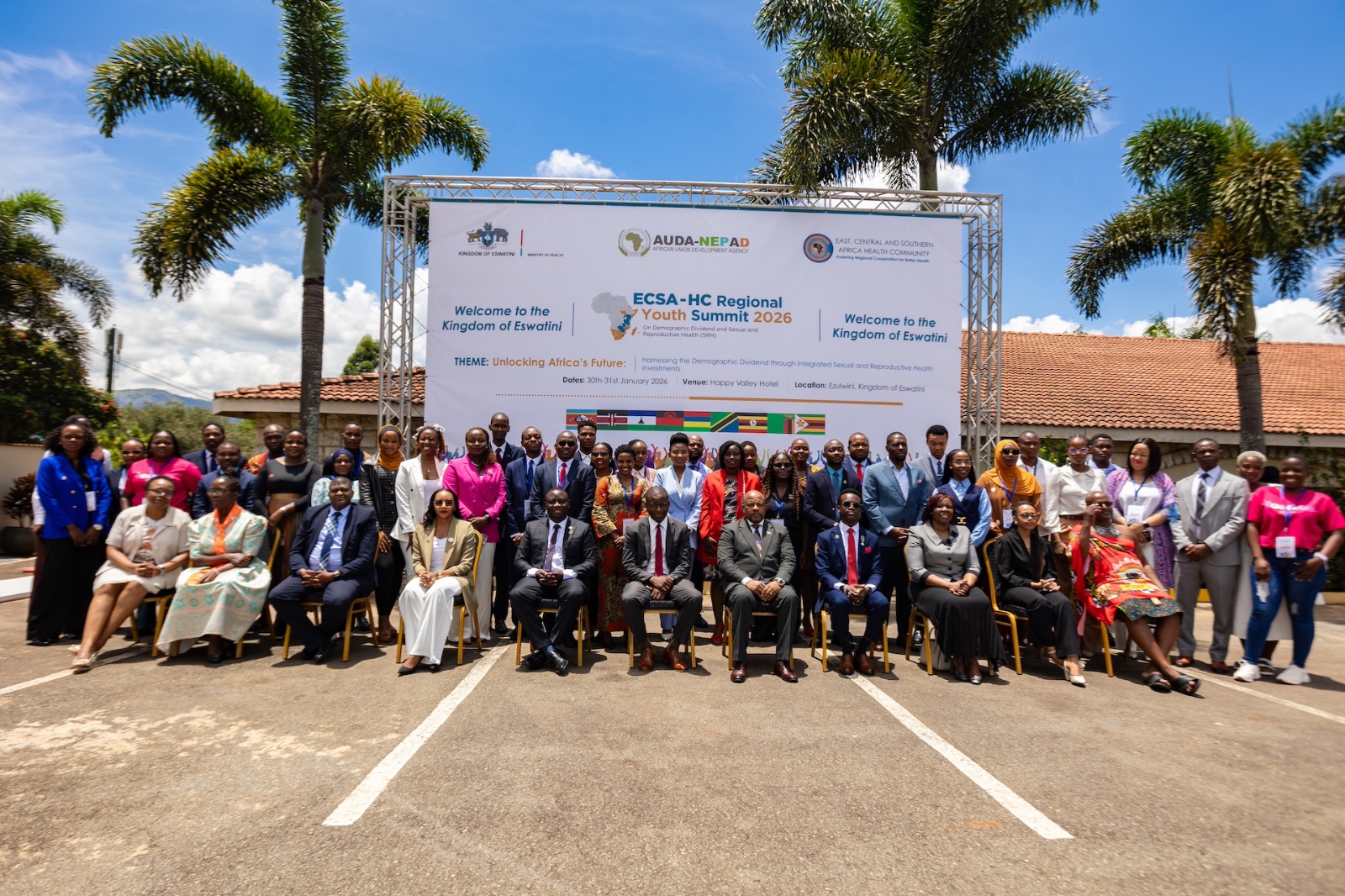ECSA-HC has successfully concluded the 76th Health Ministers Conference (3–5 Feb 2026) in Ezulwini, Kingdom…
Finalization and Launch of Rwanda’s Event-Based Surveillance Guidelines: Strengthening Early Detection of Health Threats

From September 9th to 12th, 2024, a pivotal workshop was held in Kigali, Rwanda, to finalize, validate, and officially launch the Event-Based Surveillance (EBS) guidelines. This significant event, organized by the Rwanda Biomedical Centre (RBC) in collaboration with the East, Central, and Southern Africa Health Community (ECSA-HC) and Africa CDC, marked a crucial step in enhancing Rwanda’s public health surveillance system. The EBS guidelines were developed to strengthen the country’s ability to rapidly detect and respond to emerging health threats, addressing the limitations of the traditional Indicator-Based Surveillance (IBS) system.
 Rwanda’s existing IBS system, which focuses on health facility data collection and known reportable diseases, has been instrumental since its introduction in 2012. However, its limitations in early detection and real-time response to unusual public health events highlighted the need for complementary systems. The EBS framework fills this gap by enabling the rapid collection and assessment of unstructured information on potential health threats, ensuring timely intervention.
Rwanda’s existing IBS system, which focuses on health facility data collection and known reportable diseases, has been instrumental since its introduction in 2012. However, its limitations in early detection and real-time response to unusual public health events highlighted the need for complementary systems. The EBS framework fills this gap by enabling the rapid collection and assessment of unstructured information on potential health threats, ensuring timely intervention.
 The workshop’s primary goals were to finalize and validate the EBS guidelines and to officially launch them for national implementation. Participants were drawn from key government institutions such as the Rwanda Biomedical Centre, the Ministry of Education, and the Rwanda Agriculture and Animal Resources Development Board, alongside international partners like WHO, FAO, UNICEF, and Jhpiego. This diverse group ensured that the guidelines were holistic, considering health, agriculture, environment, and education sectors to support a One Health approach.
The workshop’s primary goals were to finalize and validate the EBS guidelines and to officially launch them for national implementation. Participants were drawn from key government institutions such as the Rwanda Biomedical Centre, the Ministry of Education, and the Rwanda Agriculture and Animal Resources Development Board, alongside international partners like WHO, FAO, UNICEF, and Jhpiego. This diverse group ensured that the guidelines were holistic, considering health, agriculture, environment, and education sectors to support a One Health approach.
Over three days, participants worked in expert groups to review and refine the draft guidelines, ensuring they adhered to international standards. They focused on improving the flow of events from detection to risk assessment, updating reportable signals under the One Health approach, and enhancing the Monitoring and Evaluation (M&E) framework. The collaborative sessions were supported by a shared Google Docs platform, allowing simultaneous input and real-time updates across all teams.
On the final day, the EBS guidelines were validated and officially launched, representing a key achievement in Rwanda’s public health preparedness. The next steps include developing Standard Operating Procedures (SOPs) and integrating the EBS system into the national DHIS2 platform through the Impuruza System. A series of trainings, mentorships, and supervision activities are also planned to ensure effective adoption and implementation of the EBS system across Rwanda’s public health infrastructure.
 The launch of the EBS guidelines is a critical development in Rwanda’s ability to meet the requirements of the International Health Regulations (IHR 2005), which call for robust early warning systems to detect and respond to public health emergencies in real time. By integrating the EBS with the existing IBS framework, Rwanda is better equipped to monitor and manage both known and emerging health risks. This initiative not only strengthens national preparedness but also contributes to regional health security, enhancing collaboration and rapid response to cross-border health threats.
The launch of the EBS guidelines is a critical development in Rwanda’s ability to meet the requirements of the International Health Regulations (IHR 2005), which call for robust early warning systems to detect and respond to public health emergencies in real time. By integrating the EBS with the existing IBS framework, Rwanda is better equipped to monitor and manage both known and emerging health risks. This initiative not only strengthens national preparedness but also contributes to regional health security, enhancing collaboration and rapid response to cross-border health threats.
This workshop and the subsequent launch of the EBS guidelines underscore Rwanda’s proactive stance in building a resilient health surveillance system that will serve as a model for other countries in the region. 


